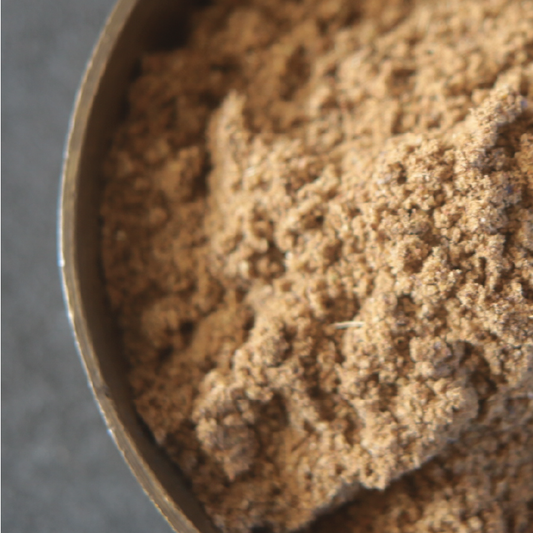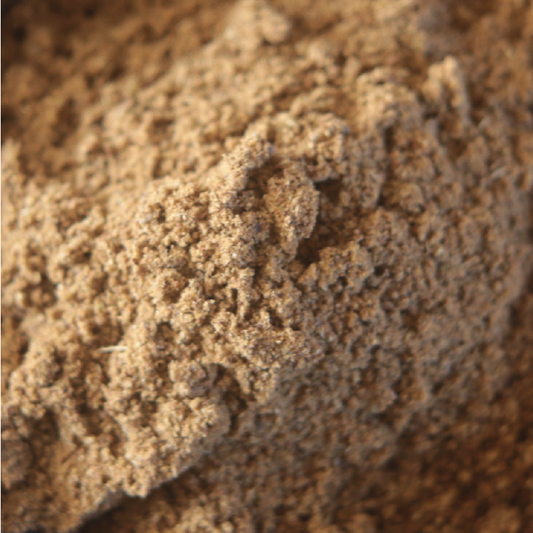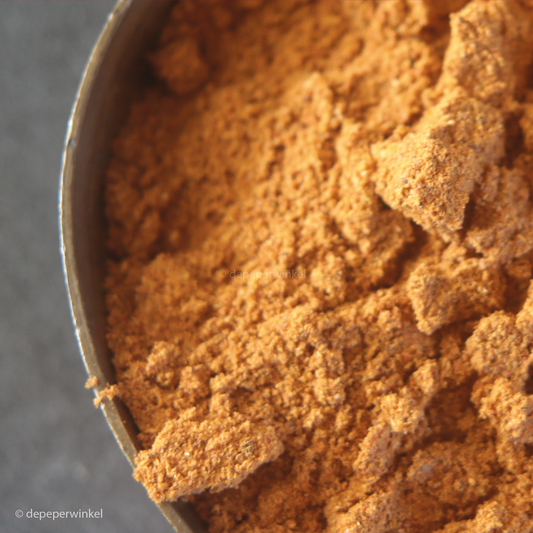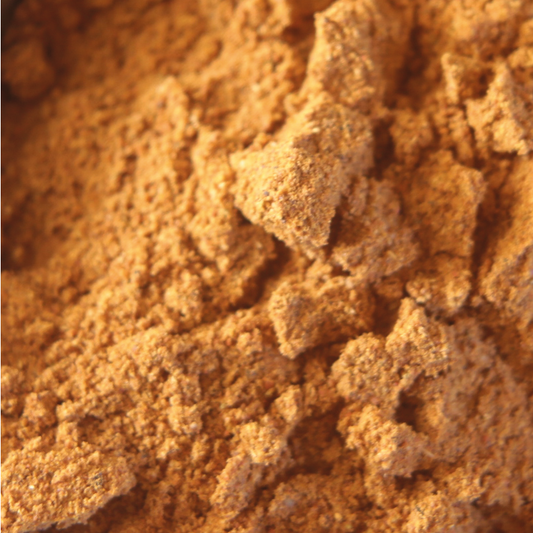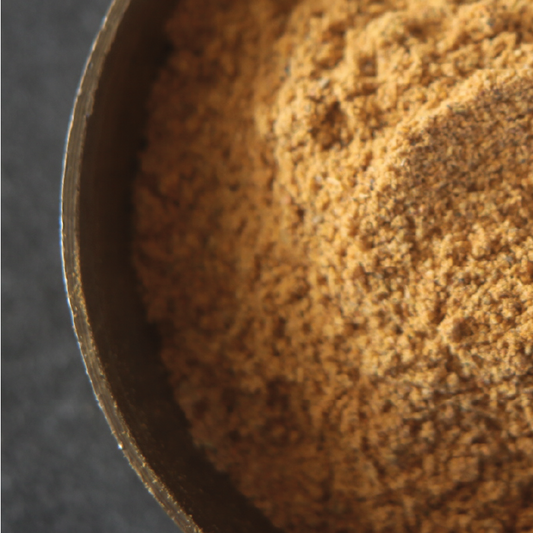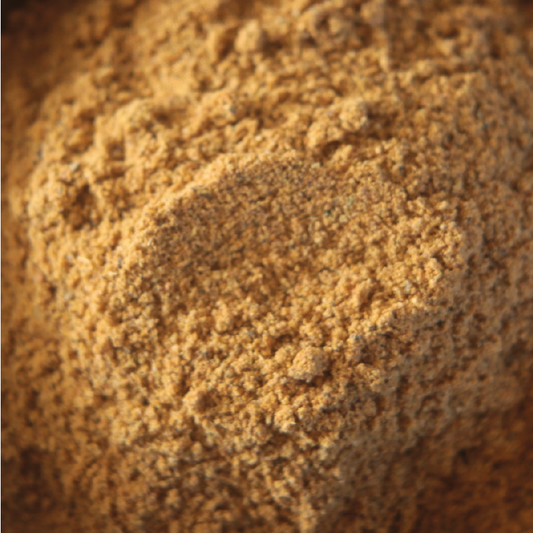Collection: Masala
The collective name for spice mixtures from the Indian cubcontinent is masala. Recipes are passed down from generation to generation. Usually the herbs are (lightly) roasted, but sometimes also dried in the sun. Masala is often added last to preserve the rich aroma. It is a misconception that 'garam' means hot as in sharp or spicy. It means warm, in the metabolic sense of the word. That is why nutmeg and cloves are used, black pepper (India is not the home of black pepper for nothing) and no chili pepper. Similar spice mixtures can be found in Iran (formerly Persia), the Middle East and Asia Minor, among others. under the names of advieh and baharat. They have in common that the recipe is not uniform. After all, recipes are passed down from generation to generation.
The term garam is of Persian origin, maςaleh as well. It means 'ingredients'.
Garam masala is mainly used in vegetarian dishes. Turmeric is often missing. In principle, garam masala is not 'curry'. In ready-to-eat garam masala, turmeric is nevertheless used to a large extent because Western expectations - apparently - are set on the yellow coloring. , the United Kingdom has the closest ties to the Indian subcontinent of any European country, and by far the largest population of Indian residents. Here they are:
- garam masala
- punjabi masala
- kashmiri masala
-
Garam masala
Normal price From €2,75 EURNormal priceUnit price €84,17 / per kg -
Kashmiri masala
Normal price From €4,05 EURNormal priceUnit price €90,83 / per kg -
Punjabi masala
Normal price From €3,90 EURNormal priceUnit price €88,33 / per kg
Subscribe to our newsletter
Our newsletter is published approximately four times a year and contains background information about our spices, news and regularly discount coupons especially for newsletter readers
